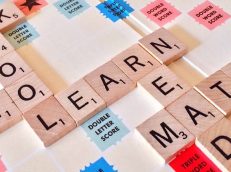Human beings are naturally gifted with linguistic intelligence. However, this natural ability can be improved with the right techniques and practices.
As a result, people can become better readers, writers, and speakers. When applied correctly, these techniques can help you achieve your goals and achieve success in your career.

What is Linguistic Intelligence?
Howard Gardner, a Harvard psychologist, coined the term “multiple intelligences” to describe the various types of intelligence, and linguistic intelligence is one of them.
Gardner defines linguistic intelligence as the ability to use language to communicate and understand ideas. This includes the ability to read, write, and speak complex languages.
When it comes to linguistic intelligence, it’s not just about being able to understand what others are saying; it’s also about being able to produce high-quality communication.
This communication skill can be used in a variety of settings, including work, school, and social interactions.
A linguistic learner who is able to effectively use language can gain an advantage over those who don’t.
How Can Linguistic Intelligence be Improved?
There are many ways to improve your linguistic intelligence. Here are 7 of the most effective techniques:
1. Read to Learn
Linguistic learners should read as much as possible. This includes reading for pleasure, reading for information, and reading for academic purposes.
Reading can help you improve your vocabulary, grammar, and reading comprehension skills. It can also help you understand complex grammar rules, and develop critical thinking skills.
When you read, you become more familiar with the structure of language. This will help you understand what is being said even if you don’t understand all the words.
2. Write a Diary or Journal
Famous writers such as Ralph Waldo Emerson and Franklin D. Roosevelt were good writers. They were able to use their linguistic intelligence to produce great works of literature.
When you write in a diary or journal, you are allowing yourself to be creative. This allows you to express your thoughts and feelings in a way that is unique to you.
It can be a cathartic experience, and it can help you work through difficult emotions.

3. Learn Foreign Languages
Linguistic intelligence is also enhanced when you learn a foreign language. While mother tongue is important, it’s not the only language that you need to be proficient in.
When you learn a new language, you will be better able to understand the rules of grammar. You will also be better able to communicate with other people. It is fun to learn a new language, and it can be a great way to expand your horizons.
4. Practice Speaking
Verbal skills are critical for linguistic intelligence. This includes the ability to speak clearly and effectively.
When you practice speaking, you will improve your pronunciation, articulation, and fluency. This will help you communicate more effectively in both oral and written settings.
Eye contact and positive body language are also important when you are speaking. When you practice speaking, you will learn how to control your voice and body language, and use them to your advantage.
5. Play Word Shuffle or Crossword Puzzles
Linguistic abilities are also enhanced when you engage with linguistic activities, such as word scramble or crossword puzzles. This requires you to use your linguistic intelligence to solve the puzzles.
You need to pay attention to the clues and figure out the words that are related to each other. This will help you improve your vocabulary and your ability to solve problems.
6. Watch Movies or TV Shows
Either movies or TV shows can be a great way to improve your linguistic intelligence. When you do that, you are learning how to use language in a creative way.
This includes the use of dialogue, sound effects, and cinematography. You will also learn how to use language in a real time setting.
TV shows and movies can be enjoyable, and they can help you learn new vocabulary and grammar skills.
7. Take Classes
Social skills are also important for linguistic intelligence. This includes the ability to communicate with others positively.
When you take classes, you will learn how to improve it. This includes the ability to listen, speak, and debate.
When you take classes, you are investing in your future, and you are building a strong foundation for your linguistic intelligence.
8. Connect with Other Linguistic Learners
A community of linguistic learners can be a great resource for you. They can provide you with advice, support, and feedback.
When you connect with other linguistic learners, you will learn from them, and you will be able to improve your skills faster.
What are the Signs That You Are Developing Linguistic Intelligence?
Some other signs that you are developing linguistic intelligence include:
1. You are becoming more fluent in your language. This sign includes the ability to understand what others are saying, and to produce high-quality communication. When you become more fluent in your language, it will help you communicate with others more effectively.
2. You are becoming more comfortable speaking in public. This includes the ability to speak clearly and effectively, and to control your voice and body language. When you are more comfortable speaking in public, it will help you build confidence, and it will make you more persuasive.
4. You are finding it easier to learn new languages. This sign includes the ability to understand complex grammar rules, and to produce high-quality communication. When you are able to learn new languages, it will help you expand your horizons, and it will give you an advantage over those who don’t know the language.
5. You are succeeding in your career. This includes the ability to communicate effectively with others, and to produce high-quality work products. When you are able to succeed in your career, it will help you build confidence, and it will give you the stability that you need in your life.

Final Thoughts
Linguistic intelligence is a natural ability that can be improved with the right techniques and practices. When applied correctly, these techniques can help you achieve your goals, as well as success in your career.
If you are looking for a tutor online, Cudy is the platform for you. Register on Cudy for free and begin your search. You can contact your favorite tutors directly through the messaging system on the platform. You can also find your preferred subjects, schedule a session and make payments easily on the platform.
FAQs
Does linguistic intelligence affect programming?
There is no evidence that having linguistic intelligence affects programming. However, being able to effectively use language can be a valuable asset in any field, including programming.
What is an example of verbally linguistic intelligence?
An example of verbally linguistic intelligence would be being able to speak in a clear and concise manner.
Is learning many languages a sign of high intelligence?
No, learning many languages is not a sign of high intelligence. However, being able to effectively use language can be an important skill for any individual.
What careers might benefit from having linguistic intelligence?
There are a variety of careers that might benefit from having linguistic intelligence. These careers include education, business, and government. More specifically, being able to effectively use language in a professional setting can be beneficial.
Is there a specific age when someone becomes able to effectively use language?
There is no specific age when someone becomes able to effectively use language. However, being able to effectively use language is something that can be developed over time.






